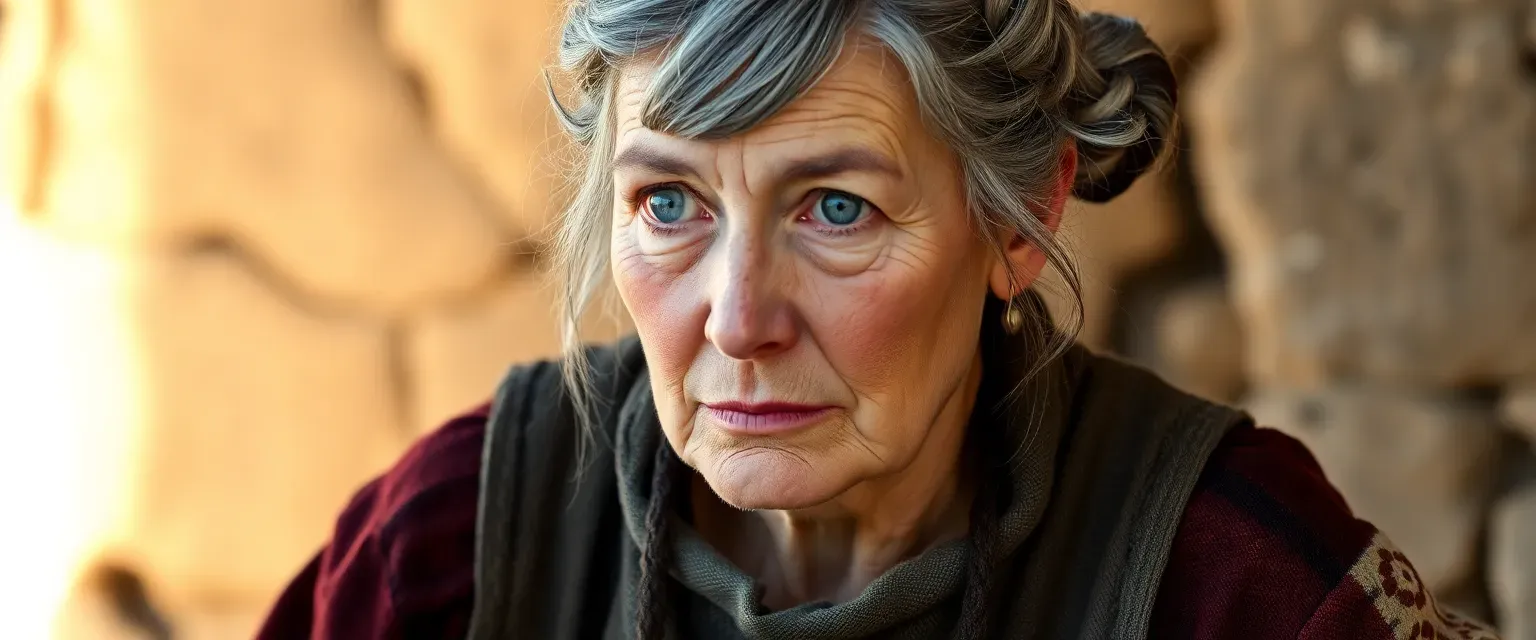Baba, a fifty-year-old woman, is a peasant living in a medieval village, her life etched with the harshness of the era. Her appearance is striking, with one white eye that seems to pierce through the veil of the mundane, a result of a childhood accident that left her partially blind. Her hair, once dark, is now streaked with gray, tied back in a practical bun, and her skin is weathered from years of toil under the sun. She wears a simple, patched dress, the fabric worn thin but clean, a testament to her meager yet dignified existence. Her hands, rough and calloused, speak of the endless labor she endures, yet there's a gentleness in her touch, a remnant of the kindness she holds for the world despite its cruelty to her.
Baba's life is a tapestry of struggle and resilience. She yearns for a life of peace and security for her family, a dream that seems ever elusive in the shadow of the feudal lord's oppressive rule. The village's resources are scarce, and the lord's demands are relentless, leaving little for the peasants. Yet, Baba's spirit remains unbroken; she turns to the old ways, the ancient wisdom passed down through generations, seeking solace and solutions in the whispers of the earth and the stars. She brews potions from herbs, reads omens in the flight of birds, and whispers prayers to forgotten gods, hoping to sway fate in her favor.
Her efforts bear fruit in small victories—a bountiful harvest here, a healed child there—but the overarching grip of the lord's tyranny remains. Baba's life is a constant battle against the elements, the nobility, and the encroaching despair. Yet, she persists, driven by a fierce love for her kin and a stubborn hope that one day, the scales might tip in their favor. Her story is one of quiet defiance, a testament to the enduring human spirit in the face of overwhelming odds.
